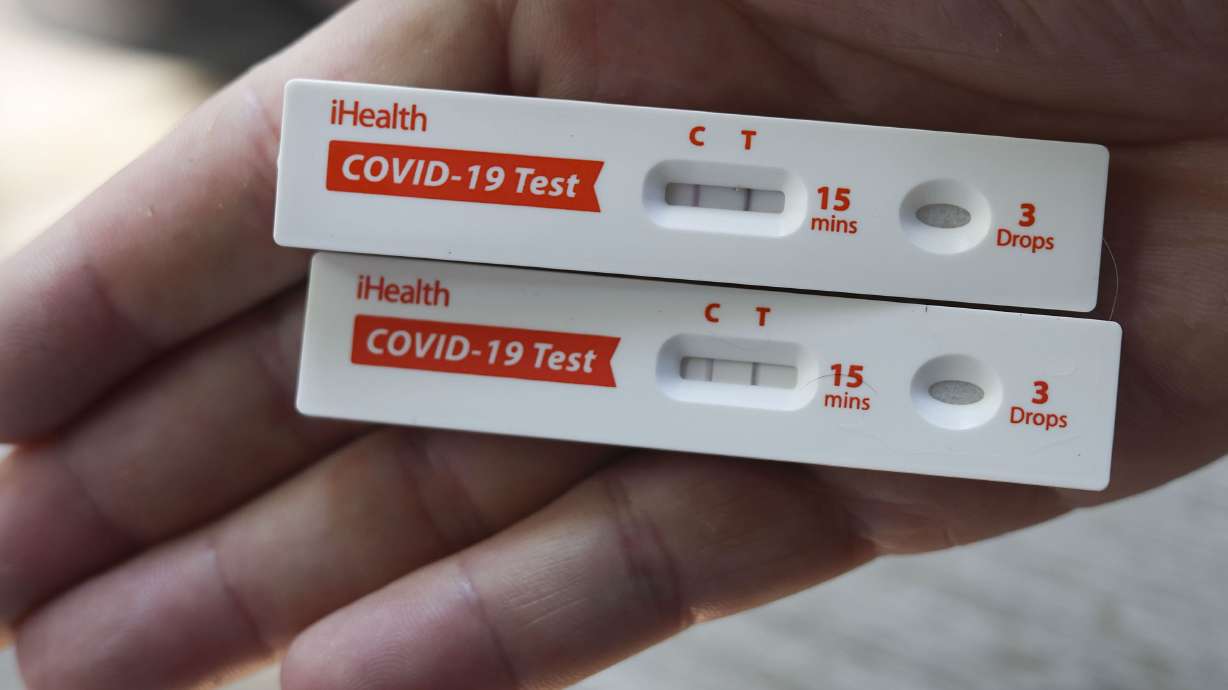Estimated read time: 3-4 minutes
This archived news story is available only for your personal, non-commercial use. Information in the story may be outdated or superseded by additional information. Reading or replaying the story in its archived form does not constitute a republication of the story.
SALT LAKE CITY — You may have exchanged more than presents and shared more than meals during recent holiday gatherings.
The Centers for Disease Control and Prevention says COVID-19 and other respiratory illnesses are surging and most states have "high" or "very high" levels right now. Flu, respiratory syncytial virus and COVID-19 are all circulating broadly, though it's possible RSV has leveled off.
Health experts are saying the COVID-19 peak is still to come.
CNN reported that every year since COVID-19 debuted, a surge in coronavirus activity has followed the winter holidays. And "even before the holidays this year, the CDC had already warned that COVID-associated hospitalizations were rising," along with the other respiratory viruses.
"After the holidays, after we've traveled and gathered, we are seeing what is pretty typical of this time of year, which is a lot of respiratory viruses," Dr. Mandy Cohen, director of the CDC, told NPR. "We're seeing particularly high circulation in the Southeast, but no part of the country is spared."
It's not easy to tell which virus you may have gotten, should you be ill. So experts told NPR that those with severe symptoms should be tested. "Getting tested and diagnosed early, with COVID-19 or the flu, can help those at risk of serious illness get access to prescription pills that can reduce their chances of ending up in the hospital," the article said.
Those with health insurance should find that flu and COVID-19 vaccines, tests and treatments are covered. And for the uninsured, per NPR, "the government is also offering a program called Test to Treat that offers free tests, free telehealth appointments and free treatments at home."
Folks who attended large gatherings may not be worried about getting ill. But Dr. Leana Wen, an emergency doctor and professor of health policy and management at the George Washington University Milken Institute School of Public Health, told CNN it's still a good idea — and a considerate move — to take care not to infect those who might be vulnerable.
"For instance, consider postponing a visit to a relative who is a resident in a nursing home or who has had an organ transplant and is on immunosuppressant medications. If the visit is already scheduled, plan to have it outside. If it must be inside, both of you should wear well-fitting, high-quality masks. Avoid sharing a meal indoors," she said.
She notes that the advice is not just for those with symptoms, since some people can have and pass on the virus without showing any signs of illness themselves. And if you take a rapid COVID-19 test and it's negative, she warned that won't tell you whether you could pass on a different virus to someone who is vulnerable.
According to CDC's map of the states, tracking respiratory virus impact nationally, New Mexico and Southeastern states are seeing the highest levels of respiratory illnesses right now, while Americans in Montana, Nebraska, Vermont and West Virginia are experiencing minimal impact, per NewsNation.
The Deseret News earlier this week published advice on protecting yourself and those around you from circulating viruses. The advice includes:
- Avoid those who are sick;
- Don't go into crowded areas, but wear a mask if it can't be avoided;
- Gather outdoors instead of inside if possible;
- Don't touch your eyes, nose or mouth, which are entry points for viruses;
- Wash hands often;
- If you have symptoms, stay home, get tested and be treated;
- If you're sick, wear a mask to protect others;









